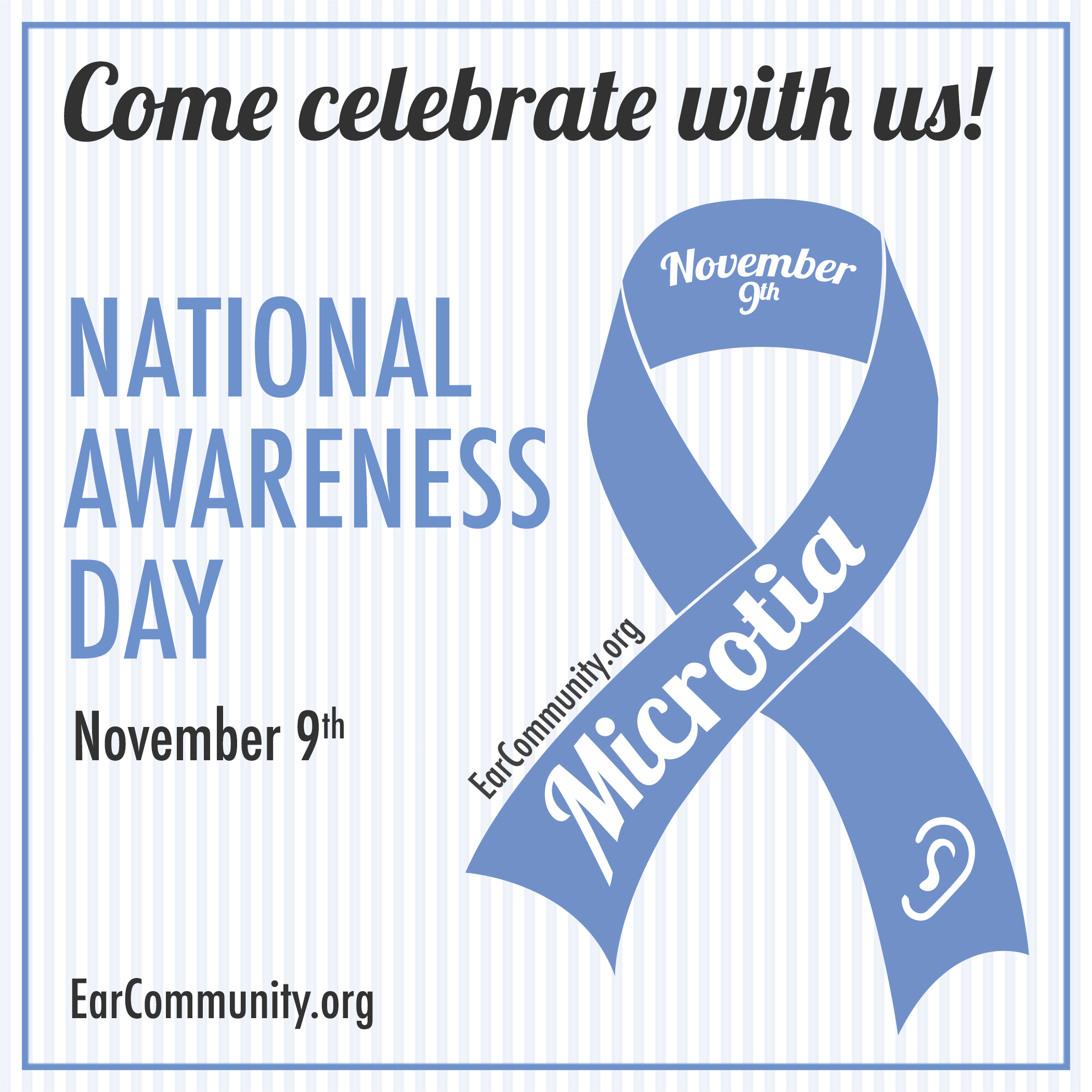2nd Annual National Microtia Awareness Day

November 9th is National Microtia Day, aimed at raising awareness in behalf of the ear community and supporting children and families affected by Microtia. The Center for Data Driven Discovery in Biomedicine at Children’s Hospital of Philadelphia is leading the Kids First Data Resource Center, a new effort funded by the NIH Common Fund to study the links between structural birth defects and cancer using big data.
By Melissa Tumblin, Ear Community
As the mother of a child who has microtia, and the founder of Ear Community, my hope is that families who have new babies born with microtia will leave the hospital armed with more answers than questions, and their dreams for their children intact. I think that if more people learn about microtia and atresia, that they will be kinder and more accepting. It is also my intention for anyone who is born without an ear(s) to realize that they are not alone. Through this national day, they can find out about organizations and resources for information and support.
Approximately one child in every 9,000 is born with Microtia (when the ear(s) do not fully develop during the 1st trimester of pregnancy). Often affecting one ear or both ears, Microtia is diagnosed at birth, but there is no understanding as to why Microtia occurs. Facial challenges, hearing loss and the longing for social acceptance are some of the daily concerns for those who are born with Microtia.
[Microtia Awareness Day] is something that I have wanted to do for a very long time now. There are so many awareness days with great causes behind them, and it was important for me to have a day for individuals with microtia and atresia, too. As a nonprofit organization that helps individuals who are born with microtia and atresia, it is part of Ear Community’s mission to promote public awareness. After trying on my own to get this day officially recognized and not being successful, I partnered with an organization who specializes in awareness days. After a long and complex process, we did it! National Microtia Awareness Day will now take place on November 9th, every year in the United States, beginning in 2016.
Children are born into this world not knowing they are any different from anyone else. Many with microtia share similar stories from getting curious stares to being bullied. By promoting public awareness and providing access to education, resources, and support, we can eliminate bullying and clear the way for an even more successful future for individuals with microtia and atresia. I would also like to focus more on advocating for children and adults who have unilateral hearing loss (UHL). UHL is an invisible disability. I believe that UHL has more of an impact than what we see from studies and research to date. It can be a struggle to obtain help for people with unilateral hearing loss, such as obtaining IEP plans for school or getting needed hearing devices covered by insurance. There are social issues as well; someone with UHL may feel that they don’t quite fit in to a community of people who are deaf or hard of hearing, and yet they struggle to hear and understand in this noisy world with “one good ear”. I hope to contribute to needed research in this area to help children and adults with UHL to be as successful as possible and to live their best lives.
Melissa Tumblin is the mother of a child who has microtia, and the founder of Ear Community. To learn more about how to support the microtia research community, visit http://earcommunity.org/. Or connect with Ear Community through social media on Facebook or Twitter.
